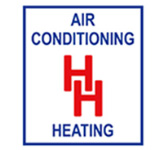Completing the search for your first home is an exhilarating experience. You’re probably trying to keep track of a dozen things or more about making the right choice. We believe that understanding your future HVAC system is crucial. The property’s HVAC system represents a significant investment and source of potential long-term costs, so being thorough helps all first-time homebuyers.
In this guide, we’ll outline seven tips for learning everything you can about a home’s heating and cooling setup. And if you want a more in-depth opinion from the experts, don’t hesitate to contact H & H Service Company. Our experienced team can help you compare your options with industry insights you won’t find elsewhere.
1. What HVAC System Are You Working With?
Start by determining what specific HVAC system the home has. Furnaces generally last longer compared to air conditioners, and newer types of HVAC equipment like heat pumps feature average life spans that are impressively long. Tracking down the make and specific model provides a clear idea of how much maintenance it will require.
2. What Is the Current System’s Age?
Another good idea is to find out how old the HVAC system is when you’re considering a new home. On average, HVAC systems should survive for around 10-12 years. Learning its approximate installation date helps you anticipate future maintenance needs or when it might eventually stop working. Older systems may be more vulnerable to problems, so planning ahead of time for a replacement unit could be necessary sooner than you thought.
3. Does the System Have a Warranty?
Be sure to check the HVAC system is covered by a warranty. If it is, you’ll appreciate how it can assist with maintenance expenses. HVAC warranties typically include parts and labor, but the details in each policy will vary. Don’t forget to look into any terms that seem confusing to make sure you fully understand your coverage and the likelihood of out-of-pocket costs.
4. When Was the Last Time It Received Maintenance?
Take a close look at the maintenance history of the HVAC system, if this kind of history is accessible. This service history can reveal if the system constantly broke down or how much upkeep was provided. You should at least try to track down a history of key tasks like filter changes, which means it enjoyed more regularly scheduled tune-ups.
5. What Are the Energy Efficiency Ratings?
Finding a home that features an HVAC system with high energy efficiency means more manageable utility bills and a smaller environmental impact. Check out the seasonal energy efficiency ratio (SEER) ratings for air conditioning along with the annual fuel utilization efficiency (AFUE) for furnaces. High SEER ratings mean more efficient cooling throughout the season, while high AFUE ratings mean the fuel is more effectively burned for useable heat.
6. Have You Noticed Signs of Problems After Your Own Inspection?
Even without the know-how of an HVAC technician, you should still inspect the HVAC system on your own. Keep an eye out for any concerning items that haven’t been mentioned by the seller. This can mean bizarre noises, stubborn patches of the house that are too hot or cold and attempts to cover up any obvious damage.
7. Have You Sought Out Expert Advice?
If you’re still hesitant to make an offer because of the current state of the HVAC system, it’s wise to get a professional opinion from trained HVAC technicians. They will be much more likely to catch things you might not, such as refrigerant leaks, bad electrical connections or inefficient ductwork.
A Call with H & H Service Company Helps Take the Stress Out of Your Home-Buying Journey
Selecting your first home ought to be exciting, and H & H Service Company can ensure yours is too. Get in touch with us at 717-220-4502. We can talk about how our HVAC services help make this process smoother, giving you what you need to step into your new home with confidence.




